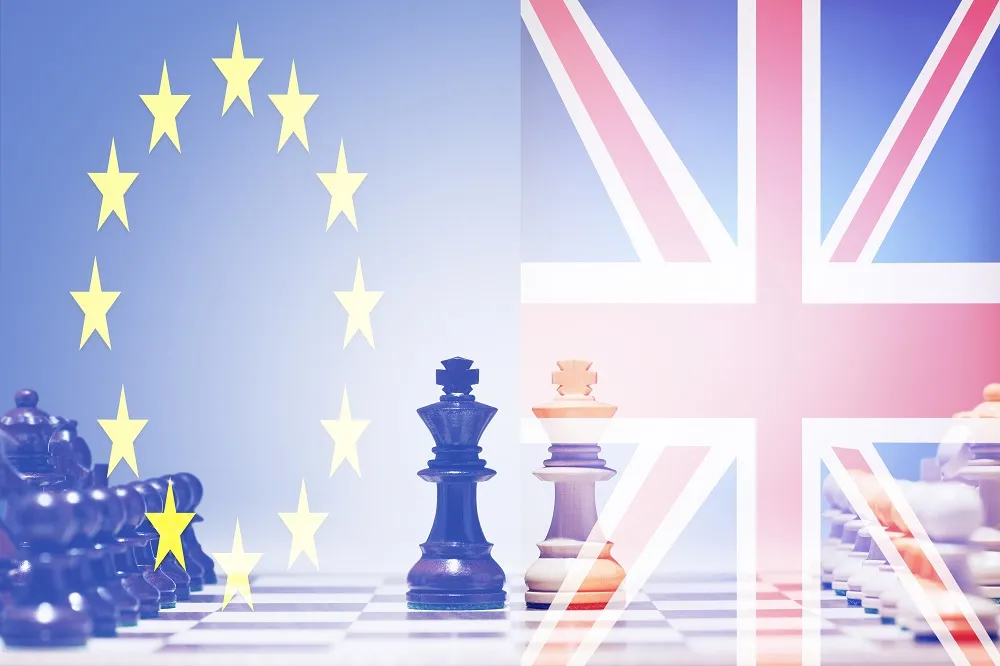UK-EU trade ‘reset’ praised by business and traders
The United Kingdom and European Union have struck a deal bringing the two closer on defence, trade and emissions, which will prove a boon for both sides, say think tanks and industry groups.
The terms of the agreement are laid out in a “common understanding” document, meaning they are not yet legally binding but are expected to be brought into force.
The three key areas for trade are the potential re-entry of the UK into the EU’s internal electricity market, a harmonisation of emissions trading programmes and the reduction of regulations on agricultural trade.
On energy, the document says that the UK and EU should “explore in detail the necessary parameters for the UK’s possible participation in the EU’s internal electricity market, including participation in the EU’s trading platforms in all timeframes”.
The UK left the EU’s energy market in 2021, when it finalised its exit from the EU.
The two also intend to link their emissions trading systems, which would allow emissions certificates to be traded between the bloc and the UK. It would have the added benefit of exempting goods flowing from the UK to the EU, and vice-versa, from Carbon Border Adjustment Mechanisms.
Energy UK, an industry association for the sector, says these measures “will remove barriers to growth, lowering energy prices, and clearing the way for a shared future powered by clean energy”.
Agricultural trade has been a major sticking point post-Brexit, leading to reports of food rotting whilst waiting to cross the border. British talk radio station LBC reported that the UK’s leading berry producer had to leave 300 tonnes of strawberries unpicked due to extensive paperwork and border delays in April this year.
The current UK-EU sanitary and phytosanitary (SPS) agreement treats the UK as a third country, meaning that goods flowing both ways are subject to border checks, which dramatically slow down trade between the two.
A report by the Centre for Inclusive Trade Policy said in December that after the UK fully left the EU in 2021, UK agri-food exports to the EU fell by over 16% over a three-year period compared to 2018-20.
The proposed revisions to the deal would allow the vast majority of agri-food products to move between Great Britain and the EU “without the certificates or controls that are currently required by the rules within the scope of the SPS agreement for such movements”.
The deal is one of three major trade negotiations the UK has made progress on this month, alongside a deal with India and a memorandum of understanding with the US.
“Of all the deals announced this month, today’s UK-EU reset is by far the most significant,” says Marley Morris, associate director for migration, trade and communities at progressive think tank IPPR.
“Proposed agreements on agri-food and electricity trading will reduce costs and support energy security,” he says.
The SPS deal is similar to a policy proposal made in IPPR’s January report, Towards a UK Trade Strategy, which it said may boost UK agri-food exports to the EU by over 20%.
Although the common understanding currently only covers a small section of the UK and EU’s economies, industry groups are also hopeful that the deal’s provision of increased clarity will benefit the UK’s economy more broadly.
“The EU remains the UK’s largest trading partner by volume, and we estimate that a closer, more frictionless relationship could add £40-60bn to UK GDP over the course of this Parliament,” says Marco Forgione, director general of the Chartered Institute of Export and International Trade.
“Businesses thrive on clarity, and progress in these talks – alongside new agreements with India and the US – sends a strong signal that the UK is serious about open, rules-based global trade.”
Simon Geale, executive vice-president at supply chain consultancy Proxima, says the benefits will be felt most strongly by SMEs, which “will feel the benefit directly of less regulation, smoother travel through customs and an overall decrease in ‘cost to trade’ with the EU”.
The deal also contains a number of security-focused aspects, which will see deeper integration on defence spending and policy.
It includes the UK’s potential accession to the EU’s Military Mobility programme, which allows free movement of troops throughout the bloc and the establishment of a Security and Defence Partnership.
IPPR’s Morris says this move “strengthens protections against Russian aggression in the face of an increasingly unreliable US”.
The deal has not been popular with everyone, however. It also allows mutual access to fishing territories until 2038, which has been seen as a major concession by the UK.
Trade organisation the National Federation of Fishermen’s Organisations says in a statement that the agreement “surrenders the best prospect that the fishing industry and coastal communities had for growth over the coming decade”.





